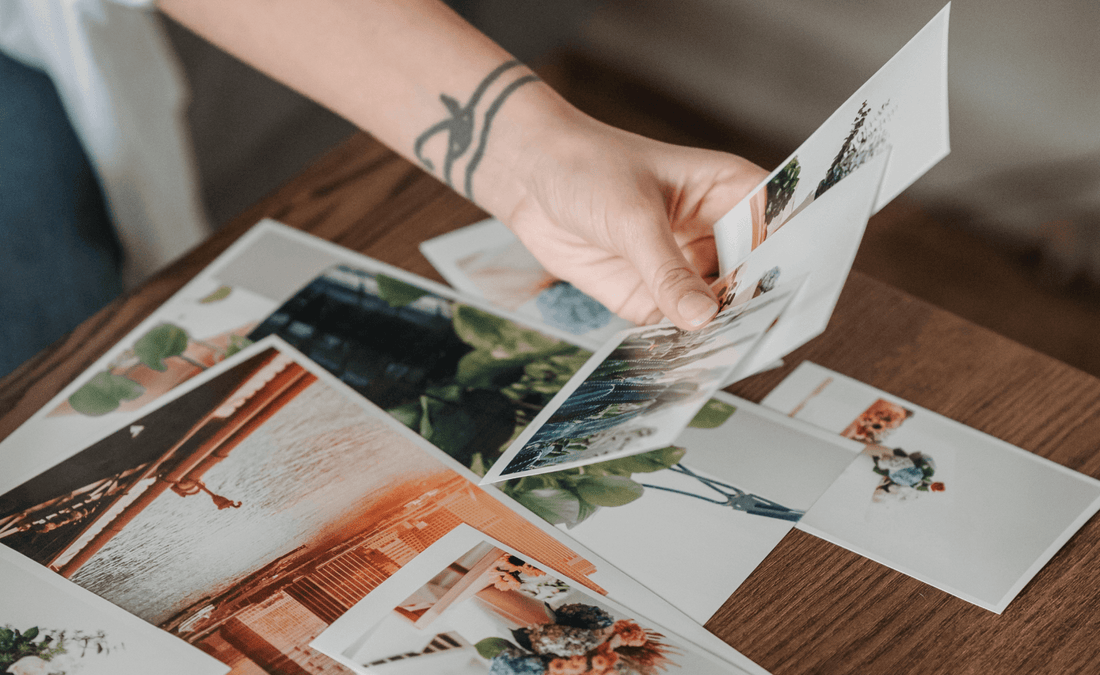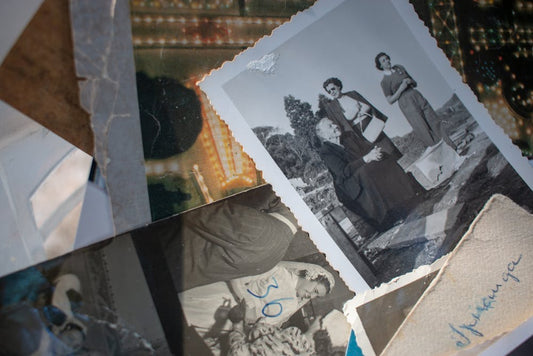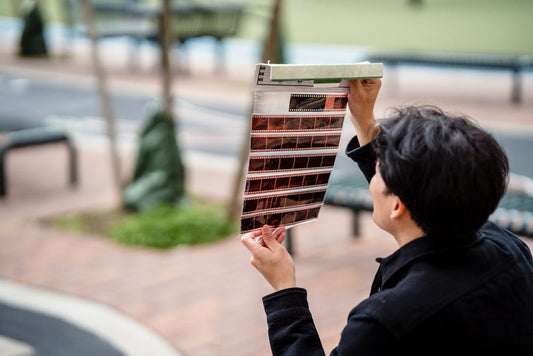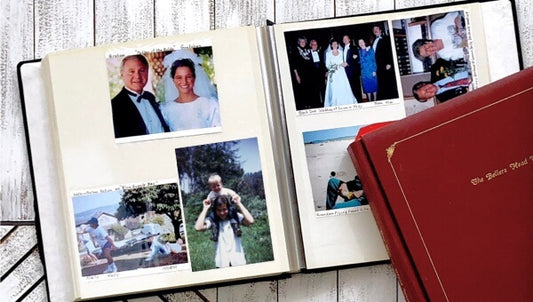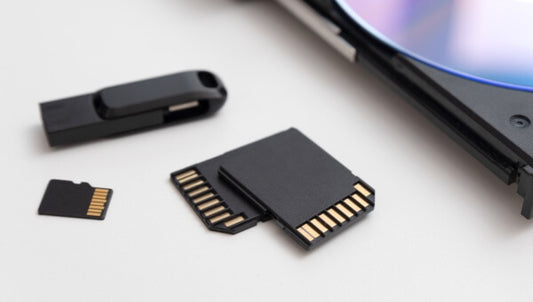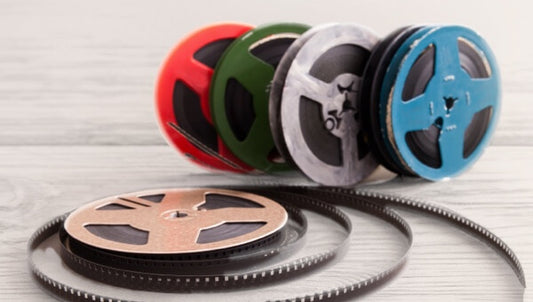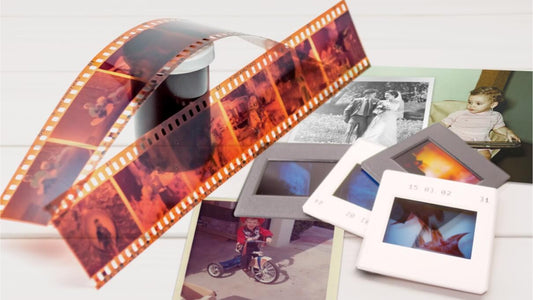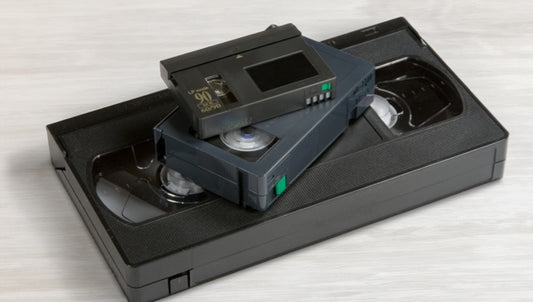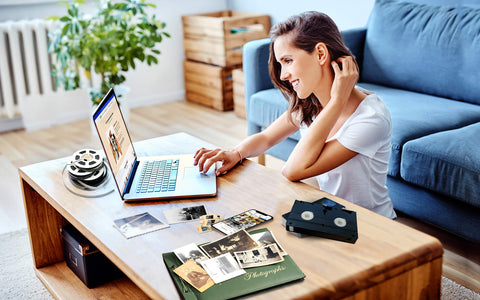Scanning printed photos allows you to upload them to your computer, share them on social media, add them to your other devices, and even edit them with photo editing software like Photoshop. To ensure the highest quality results, it’s important to understand the best way to scan photos.
Capture offers high-quality photo scanning services including the first-ever touchless photo album scanning service, so we know a thing or two about quality scans. That’s why we put together this guide to the best way to scan photos.
Keep reading to understand why it’s important to choose a high-quality photo scanning method and learn 5 different techniques including the best way to scan photos at home with a flatbed scanner as well as by using photo scanner machines, multi-function printer scanners, mobile apps, and professional photo scanning services.
Jump to:
- The Importance of Scanning Quality
- The Best Way to Scan Photos – Using a High-Resolution Flatbed Scanner
- Efficient Scanning – Using a Dedicated Photo Scanner
- Convenience Scanning – Using a Multi-function Printer/Scanner
- Professional Scanning Services
The Importance of Scanning Quality
Higher quality scans and the best techniques offer tons of benefits for your family memories.
First, while old photos, Polaroid pictures, prints, and even negatives will fade over time and are susceptible to water damage and other problems, a quality scan can preserve the color and resolution as it currently exists with your memories. That means you get a reproduction that’s as close to the original image as possible.
Low-quality scans won’t preserve it in this way and can appear blurry, distorted, discolored, and faded. It can also highlight blemishes, dust, debris, and scratches. When you’re talking about your precious memories, you surely don’t want them to be impacted by these types of imperfections, especially when they are preventable with higher quality techniques for scanning photos at home.
Additionally, using the correct techniques will also reduce the risk of damaging your family photos. That way, you can still use the original photos when you learn how to scrapbook, pass them down to future generations, place them in frames, or create photo gifts for him or her without worrying about losing the only version of the photo forever.
The Best Way to Scan Photos – Using a High-Resolution Flatbed Scanner

If you want the best way to convert photos to digital at home, then get a high-resolution flatbed scanner for photos. A typical flatbed document scanner can work but is far from the best way while the high-resolution options will produce digital copies of your photos in the best quality possible.
In fact, they might even look better than the originals when it comes to contrast, light, and other features. There are great options that you can use on both Microsoft Windows and Apple Mac computers.
Yes, it is time consuming to create the highest possible quality because you’ll have to scan each photo separately, but this also helps with organizing photos and creating easy-to-share JPEG files. Not only that, but the best scanners also allow you to adjust the DPI for scanning photos to produce the best results. While higher DPI, or dots per inch, will take longer, you’ll get better detail and results.
We recommend using a DPI of at least 800, but the best flatbed scanners can get up to 4800 DPI or higher for precise resolution like the Epson Perfection V550 with 6400 DPI scan resolution. For faster photos with lower quality, the Canon DR-F120 is pretty good too. Other options for best photo scanner include Xerox XD-COMBO and the Canon CanoScan 9000F Mark II.
Efficient Scanning – Using a Dedicated Photo Scanner

While flatbed scanners deliver the best results and the highest possible resolution, a dedicated photo scanner machine is another option that can be efficient and still produce good quality digital files. You can also find them for decent prices on Amazon and other online stores.
Some like Plustek ePhoto Z300 are affordable and easy to use, while others are targeted more toward tech-savvy users, like the Epson FastFoto FF-680W. most of these types of options still require a computer with USB drive for scanning, but there are also standalone photo scanning machines. , while not
For example, the Kodak Slide N Scan, while not designed for photo prints, is a stand-alone option for 35mm negative scanning or photo slides. That being said, if you need to scan old photo prints into digital images you’ll have to go with another option. One alternative that can scan photos 4x6 or smaller as well as negatives and slides is the ClearClick QuickConvert.
Photo scanners are typically easy to use with close to plug and scan capability, but like other DIY options, it will take a while to digitize old photos. However, this is definitely the most efficient and fast method to perform photo to digital scans on your own. It won’t deliver as good results as the most high-resolution flatbed scanners, but they are usually quite a bit cheaper, which is always nice.
Convenience Scanning – Using a Multi-function Printer/Scanner

Multi-function printer + scanner machines are incredibly convenient because they will not only create digital photos but will also print our new copies. That way, you can use best practices for how to store film and photos for the original physical photo while also having back-up physical and digital copies to share with family members, keep in shoeboxes, use for photo albums, or anything else.
The main downside of this option is that these machines are very expensive. While you can get them for a few hundred bucks, those are typically on the lower end of quality and may also be pre-owned and refurbished. The best can cost $1,000 or more.
One of the best options that doesn’t cost too much is the Epson Expression Photo XP-970. It’s wireless and pretty straightforward, but the prints won’t be as high quality as the more expensive options. For example, while the HP Officejet Pro 8600 is technically made to scan documents, it has a scan resolution of up to 4800 DPI as well as a high-quality printer.
Mobile Scanning – Using a Mobile App

If you want to scan photos fast on the go, then you can get photo scanning software apps for your iPhone or Android smartphone. While this isn’t the best way to scan photos if you want the highest quality digital results for your old photographs, it’s certainly convenient and can be affordable as well. Some apps even have features that can restore pictures for you with color correction, scratch removal, colonization, and more.
The main downside is that it relies on your phone’s camera. While cameras on the most recent phone releases are quite good for taking original pictures, they aren’t near as good at taking pictures or pictures and the quality will almost certainly decrease during the process.
Google PhotoScan app is a popular option that will scan old family photos into digital format and is designed to reduce glares. It’s also free to download, but some people complain about discoloration and blurry results.
Another app is Photomyne for Apple IOS as well as Google Drive integration. Their family of apps simplifies scanning photos with a phone while also offering photo editing tools including colorization, photo storage, transfer to an external hard drive, PC, or Dropbox, and more.
Professional Scanning Services

Those are all the DIY methods for scanning old photos, but another one of the best ways to scan photos is to use a professional service. You might have local options near you that can digitalize family photos, but if not there are also online options.
Most online options not only offer photo scanning, but also know how to digitize Super 8 film, transfer videotapes, and convert other media formats. You can go online to read Capture, LegacyBox, Scan Café, and iMemories reviews to ensure you choose the best option for digitizing and preserving scanned photos.
Capture offers over 20 years of digitization experience, and our state-of-the-art tracking and security system will make sure your photo collection is safe through every hand and all the way back to you. We also offer the first-ever touchless photo album scanning, which means we can digitize your entire photo albums without anyone ever having to touch the pictures or risk damage.
Conclusion
As you can see, while the best way to scan photos on your own is to use a high-resolution flatbed scanner, there are plenty of other options. If you want a convenient method to create new physical copies, then a Photo scanner/printer combo might be a good choice while the most convenient methods are photo scanning machines and app.
If you want professional results for your more precious memories, choose Capture to scan your photos into high quality digital files. Click here to learn about our photo scanning services!

